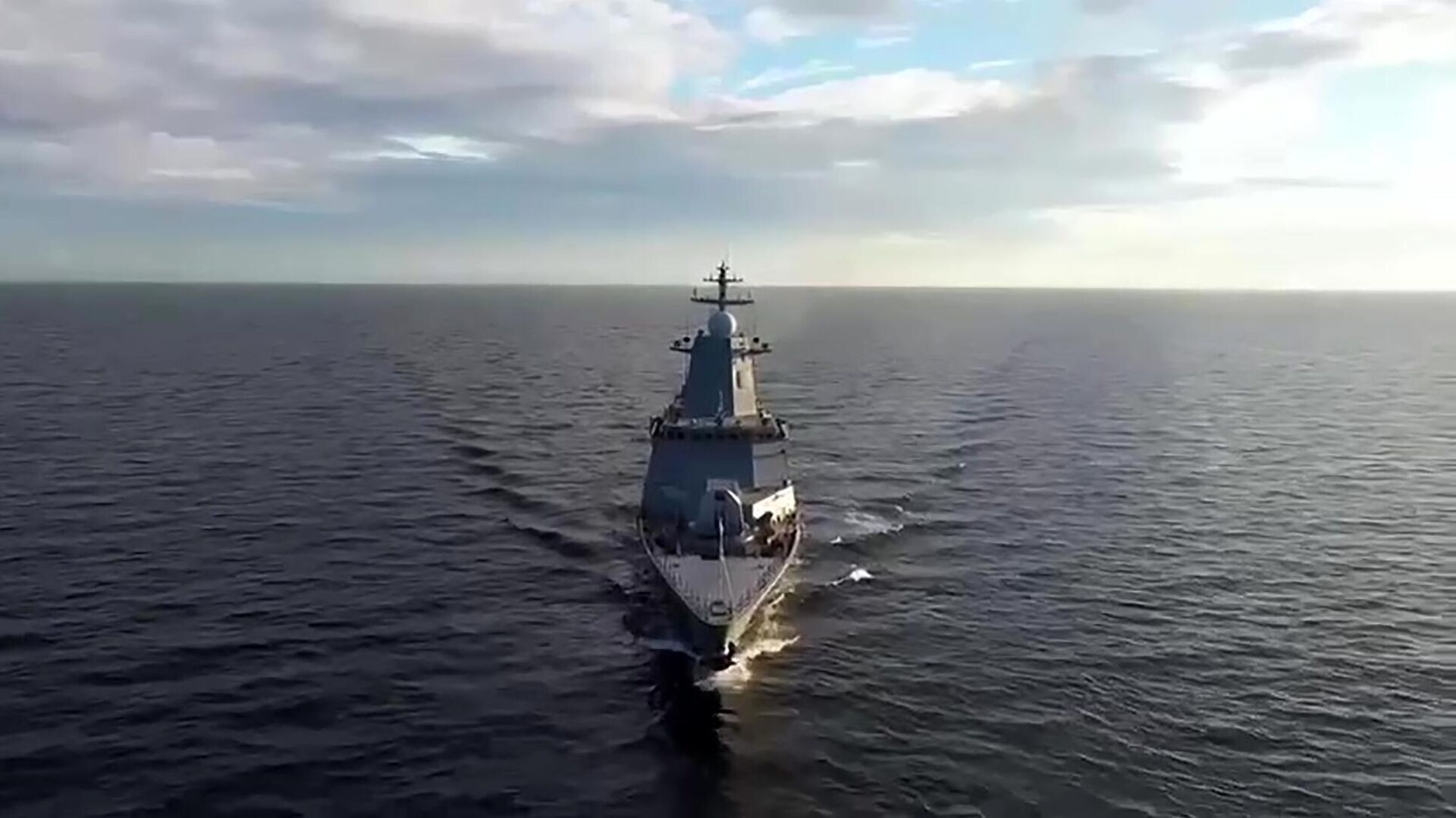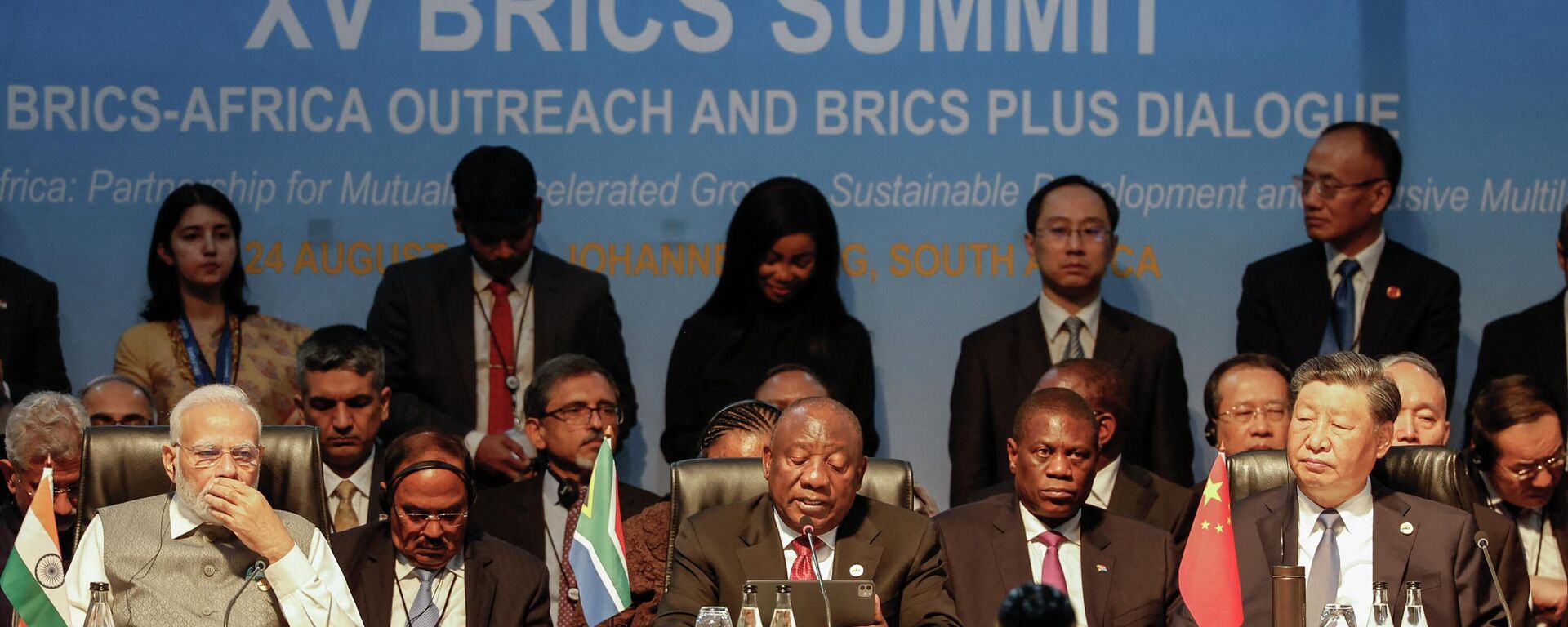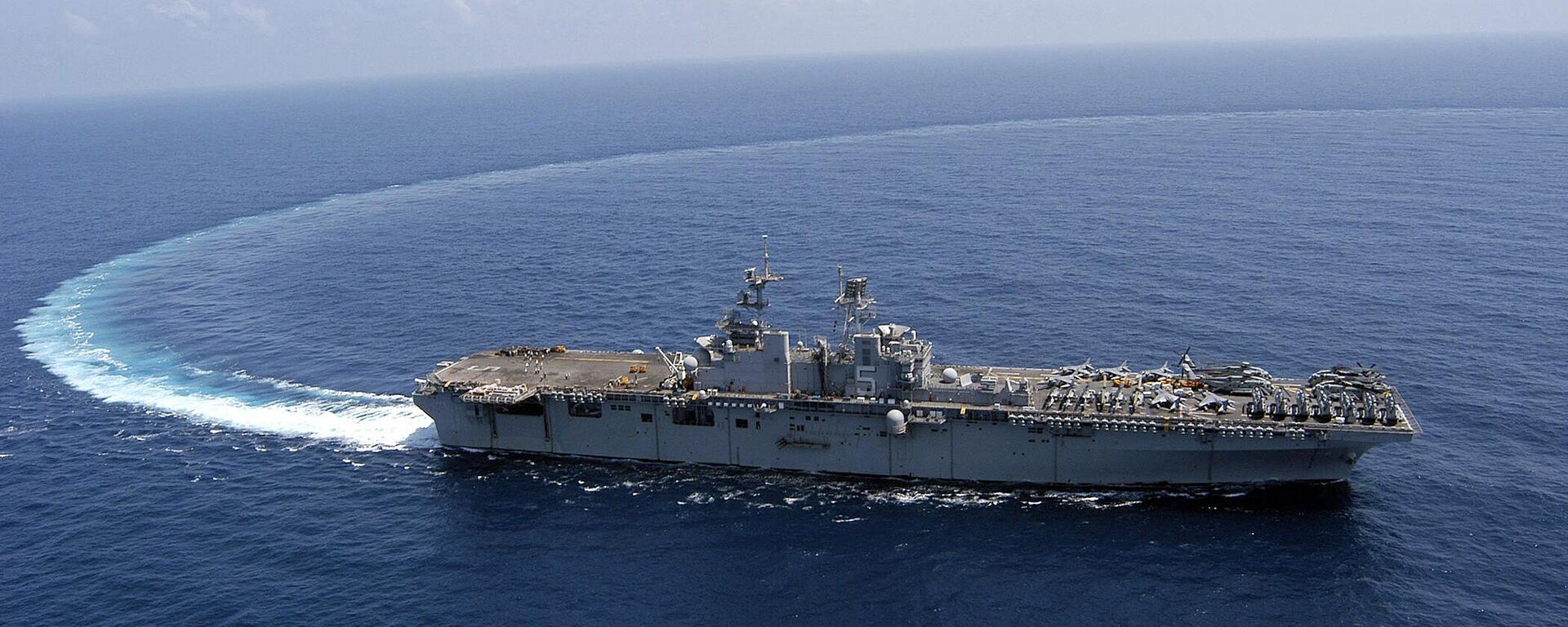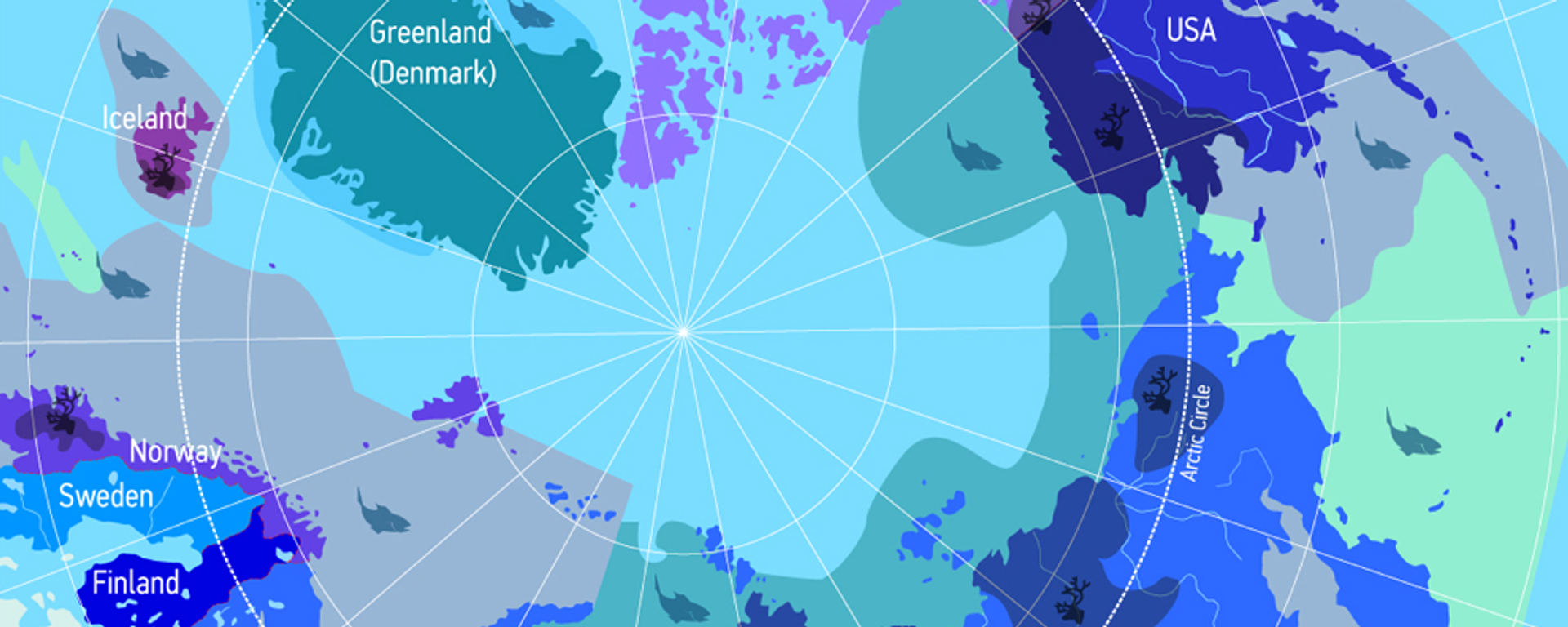How New Logistics Routes Will Ensure BRICS Security

© The Russian Defense Ministry
/ Subscribe
During the BRICS Summit 2023, Vladimir Putin called for the establishment of a permanent BRICS transport commission to deal with the development of logistics and transport corridors interregionally and globally. What are the geographical advantages of BRICS’ expansion?
After the inclusion of Saudi Arabia, Egypt, the United Arab Emirates (UAE), Iran, Argentina, and Ethiopia in BRICS, the organization will gain access to an extensive network of strategic logistics resources. The group's vast logistics network will include the Northern Sea Route, the North-South and West-East transport corridors, entries to the Persian Gulf, the Red Sea, and the Suez Canal.
"An important priority for BRICS interaction is the creation of new sustainable and safe transport routes... We believe that the time has come to establish within the framework of BRICS a permanent commission on transport, which would deal not only with the North-South project, but also, in a broader sense, with the development of logistics and transport corridors," Russian President Vladimir Putin said, addressing the audience of the 15th summit via video link.
The commission mentioned by Putin would help ensure access of BRICS' 11 nations to new logistics routes, as per Professor Alexis Habiyaremye, senior researcher with DSI/NRF, South African research chair in industrial development at the University of Johannesburg.
"Basically, the composition of the commission would be ideally based on the tasks that are assigned to such a commission," Habiyaremye told Sputnik. "So when we look at BRICS as bloc of countries and we look at the types of transport corridors that are needed, they are not evenly distributed over the current members and even the prospective members. So basically the composition of that commission should reflect the assignment of the development of these new logistics corridors."
Per the professor, countries that are mainly interested in such transport corridors are primarily Russia, Iran, and China. He explained that apart from ensuring access to open seas, the countries are looking to find alternative solutions to "choke holds," like the Strait of Singapore, the Strait of Malacca, the Suez Canal, the Bosphorus, and the Strait of Hormuz.
"The main task would be establishing resilience and alternative solutions to the vulnerability of such chokeholds. So, countries like Russia and China... One of the most important considerations will be to develop high-speed train transportation corridors in the area where the ancient Silk Road used to be. So to make sure that there is an alternative to the freight transport, which cannot necessarily replace the sea transport, but which also alleviates an alternative in case there is a conflict and the Strait of Malacca, for instance, were blocked, or the Suez Canal were to be actually a stranglehold, then the link between China and Russia via Central Asia would be quite important," the professor continued.
The other important project is the North-South Corridor linking the west and north to Russia to the Persian Gulf, according to Habiyaremye. When it comes to the Northern Sea Route (NSR), it is critical for Russia, as it will help it avoid a potential sea blockade by Western states amid ongoing sanctions, he believes. Likewise, the Suez Canal and the Red Sea would be located within the jurisdiction of Russia's BRICS partners after the inclusion of both Saudi Arabia and Egypt, he remarked. Apparently, the BRICS partnership will also help solve controversies emerging over the Suez Canal and the Strait of Hormuz, giving the group diplomatic leverage.
"Even before the expansion to new members, the five BRICS countries had already an economic weight that was growing higher than the G7 countries in terms of purchasing power parity. Now, with the inclusion of the new members, the economic weight of BRICS+, if we may call so, is going to grow even further. And with the prevailing economic conditions in the G7 countries, its economic importance is going to decline relative to the BRICS countries. So with the rise of India as an economic power, not to mention China, with Indonesia possibly coming in the second round of expansion, it's not on the list of the six countries, but it was also one of the prospective members, the weight of the BRICS and the BRICS-friendly countries is going to increase even more, and thereby reduce the ability of the G7 to use economic power to pressure developing countries," Habiyaremye concluded.






